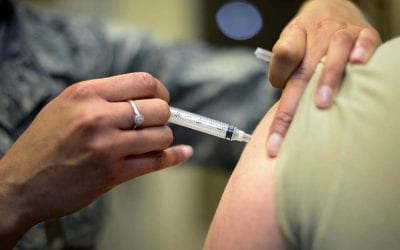The Federal Communications Commission (FCC) banned the use of cellular services, including cellphone voice calls, in 1991 when most every cellular system in the world used analog technology. The sophistication of today’s cellular services and handsets was almost inconceivable in the early ’90s. Twenty-three years ago, the technology problems of cellphone use on planes were real. Today, those problems no longer exist.
Now that the technology issues of cellphone use on airplanes no longer exist, I believe it’s inevitable that the FCC will lift their ban on cellphone use, including for voice communication, on scheduled, commercial, passenger air travel in the US.
Air travelers are upset about the potential consequences of lifting the cellphone ban. As I wrote in my column late last year, “Will airlines need to install ‘Phone Booths of Silence?’,” many air travelers are concerned with the potential “din of cellphone calls while aloft,” if cellular voice communication is permitted.
The Federal Aviation Administration (FAA) released a report detailing a recent study about civil air authorities outside the US, which reported no passenger “air rage” or “flight attendant interference” has occurred in their jurisdictions, due to passengers using cell phones while flying. The FAA report indicated there were few complaints about passengers being too loud and that inflight cell calls were short, averaging just a minute or two in length.
The lack of air rage or complaints doesn’t mean passengers weren’t upset with cellphone use on their flights. Few, if any, air travelers would ever challenge another to a wrestling match over a cell call and few people take the time to complain when they think their complaints won’t matter. On a flight I took in Europe last summer, passengers making cellular calls weren’t attacked, but they got icy stares from other passengers with “daggers in their eyes.”
I wasn’t surprised by those passengers’ reactions to the calls, nor their complaining among themselves.
According to a December, 2013 Quinnipiac University national poll, Americans oppose the use of cellphones for voice communication on airplanes by 59 percent-30 percent. Even those in the 18–29 age group oppose the calls by 52 percent-39 percent.
Every poll run in recent months shows the same thing. The majority of American air travelers don’t want cell phone voice calls permitted on planes, when they’re in the air. I agree with them. While I’m opposed to passenger voice calls by devices such as cellphones or computers, for example, I’m in favor of permitting silent cellular communication, such as email, texting and text-based chat from those same devices.
Apparently, Congressman Bill Shuster (R–Penn.), Chairman of the Transportation and Infrastructure Committee, who has proposed a law to ban voice calls by cellphones on scheduled, commercial air transportation, agrees. Congressman Shuster has said,
“Airplane cabins are by nature noisy, crowded and confined. In our day-to-day lives, when we find someone’s cell phone call to be too loud, too close, or too personal, we can just walk away. But at 30,000 feet, there’s nowhere else for an airline passenger to go.”
On that European flight I took with passengers talking on their cellphones, despite how short the calls were and that the callers were not screaming, they were speaking into their phones more loudly than normal conversation and the sounds of those calls were not able to be blocked by my “top of the line” noise canceling headset. I was secretly hoping all the cellphone batteries on the plane would go dead. Alas, it didn’t happen.
While I’m personally pleased Congressman Shuster and thirty bipartisan co-sponsors have proposed this legislation, I have concerns about the bill as currently written. I think the bill has a major hole in it and isn’t nearly clear enough about the devices covered by the ban.
The main clause of the proposed law states,
“The Secretary of Transportation shall issue regulations … to prohibit an individual on an aircraft from engaging in voice communications using a mobile communications device during a flight of that aircraft in scheduled passenger interstate or intrastate air transportation …”
The problem I see in the bill is with the definition of “mobile communications device.”
The proposed legislation defines a “mobile communications device” as,
“…any portable wireless telecommunications equipment utilized for the transmission or reception of voice data.”
It may be splitting hairs, but I can see how a laptop computer used for voice calls could be construed as outside that definition and, therefore, outside the inflight voice call ban this legislation would create. I don’t think this legislation is tight enough to ensure voice calls by laptops through such software as Skype is banned.
I would prefer the bill define “mobile communications device” as,
“any portable device which can be, or is, used for the transmission or reception of voice data.”
If you support or oppose this bill, I suggest you contact your Congressman and Senators. I have.
After many years working in corporate America as a chemical engineer, executive and eventually CFO of a multinational manufacturer, Ned founded a tech consulting company and later restarted NSL Photography, his photography business. Before entering the corporate world, Ned worked as a Public Health Engineer for the Philadelphia Department of Public Health. As a well known corporate, travel and wildlife photographer, Ned travels the world writing about travel and photography, as well as running photography workshops, seminars and photowalks. Visit Ned’s Photography Blog and Galleries.


